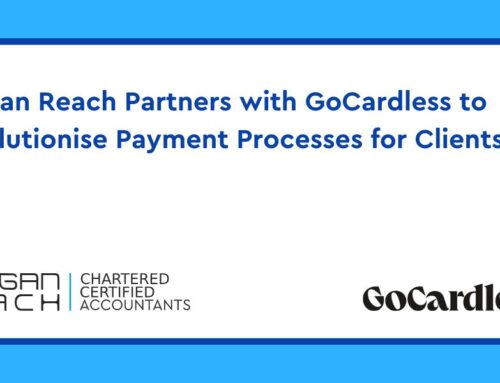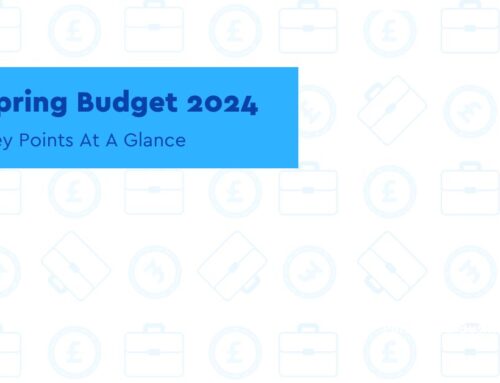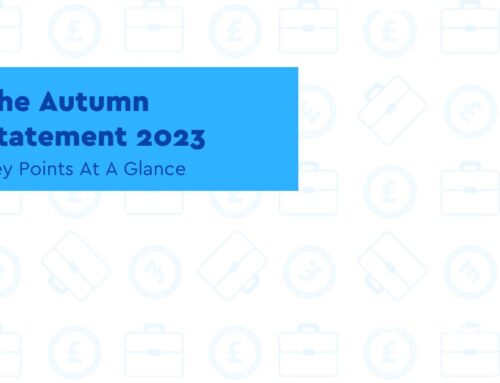Government announces simplified tax reporting for self-employed and small businesses
Key Points
- The changes mean businesses will be taxed on profits arising in a tax year
- It will align the way self-employed profits are taxed with other forms of income, such as property and investment
Reforms to the tax system that aim to make it easier for self-employed workers and small businesses to fill out their returns have been announced by the Government.
The changes, which will come into force by 2023 and have been drawn-up alongside representatives of small businesses, will mean businesses will be taxed on profits arising in a tax year, rather than profits of accounts ending in the tax year.
It will align the way self-employed profits are taxed with other forms of income, such as property and investment income.
Under the current system, tax returns filed by the self-employed, sole traders and partnerships are based on a business’s set of accounts ending in the tax year (April 5). More complex rules apply when a business starts and draws up its accounts to a date different to the end of the tax year.
In those cases, taxpayers pay tax for their first tax year on the period to the end of the tax year, and then in subsequent years on the basis of their full accounting year, meaning profits are taxed twice and complex rules apply to relieve the double taxation when the business finishes.
Financial Secretary to the Treasury Jesse Norman said:
“These complex rules lead to thousands of errors and mistakes in self-employed tax returns every year.
“Simplifying them will allow self-employed people to spend less time doing tax admin and more time growing their business and creating jobs.”
The change to the time periods against which businesses report their tax will also reduce the number of times those with several sources of income will need to report their income under MTD for Income Tax.
Helping businesses to prepare for full Customs Control in January 2022
Key Points
- Businesses will need to take steps to ensure they can continue trading with the EU
- These include making supplementary declarations and appointing a customs intermediary
HMRC is encouraging UK businesses to prepare for customs changes which will be introduced over the coming 6 months.
More than 160,000 businesses should be hearing from HMRC, explaining the steps they should take to ensure they can continue trading with the EU.
These include:
- Making supplementary declarations
- Appointing a customs intermediary
Making supplementary declarations
Businesses already importing goods using delayed declarations should get ready now to have everything in place to make supplementary declarations on time. Traders need to decide whether to make their own declarations or get a customs intermediary to do it for them.
Traders using the delayed declarations process have 175 calendar days from the date of import from the EU, to make the supplementary declaration. They need to apply for a duty deferment account (DDA) and authorisation to use simplified declaration procedures now, if they have not already.
Appointing a customs intermediary
Businesses can find information online about how to get an expert to deal with customs paperwork for them, as well as an up-to-date list of customs intermediaries that can help them.
HMRC will also be contacting customers over the coming months with further details on what they need to do to prepare for the introduction of full customs declarations, from 1 January 2022.
Traders can read step-by-step guidance on:
VAT liability of charging electric vehicles
Key Points
- You can recover the input tax if you are a sole proprietor and charge at home for business purposes
- Employees charging at the employers premises can recover VAT for the supply of electricity
HMRC has clarified the VAT treatment of the supply of electricity for electric vehicles in a recent brief, outlining when input tax can be recovered when charging for business purposes.
The update clarifies that the standard rate of VAT applies to supplies of electric vehicle charging through charging points in public places.
VAT liability for electric vehicle charging through charging points in public places
Supplies of electric vehicle charging through charging points in public places are charged at the standard rate of VAT. There is no exemption or relief that reduces the rate of VAT charged.
Recovering input tax for charging electric vehicles
You can recover the input tax for charging your electric vehicle if all of the following apply:
- You are a sole proprietor
- You charge your electric vehicle at home
- You charge your electric vehicle for business purposes
You should work out how much of charging your electric vehicle is for business use and how much is for private use. You can recover VAT on only the business use amount. The usual input tax rules apply.
As a sole proprietor, you can recover the input tax for charging your electric vehicle for business use at other places. The usual input tax rules apply.
The rate for recovery of input tax for charging electric vehicles is the same as the VAT rate charged on the supply of electricity.
Employees charge an electric vehicle (which is used for business) at home
You cannot recover the VAT. This is because the supply is made to the employee and not to the business.
Employees charge an employer’s electric vehicle (for both business and private use) at the employer’s premises
Your employee needs to keep a record of their business and private mileage so that you can work out the amounts of business use and private use for the vehicle.
You can recover the full amount of VAT for the supply of electricity used to charge the electric vehicle. This includes the electricity for private use. However, you will be liable for an output tax charge on the amount for private use. This is because a ‘deemed supply’ has been made. Alternatively, you can recover VAT on only the business element. The usual input tax rules apply.
Partnerships
For VAT purposes a partnership itself must incur VAT for it to be recoverable.
Covid recovery: IMF predicts UK economy to grow faster than expected
Key Points
- The IMF’s forecasts for 2021 and 2022 are now closer to those made by the Bank of England in May
- The increase is a sharp increase from the 5.3 per cent predicted in the previous report in April
The UK economy is set to recover much faster than expected from the Covid crisis after a resurgence in consumer spending and the success of the vaccine rollout boosted forecasts.
According to the International Monetary Fund’s latest Economic Outlook report, the UK economy will expand seven per cent this year, a sharp increase from the 5.3 per cent predicted in the Fund’s previous report in April and the joint-fastest growth rate among major advanced economies.
The UK economy recorded its worst economic performance for more than 300 years in 2020 as it reeled from the initial shock of the coronavirus crisis before staging a better than expected recovery later in the year.
The IMF’s forecasts for 2021 and 2022 are now closer to those made by the Bank of England in May.
The new projections come as part of the IMF’s quarterly update on the world economy, which pointed to a rift between rich nations that had been able to roll out Covid-19 vaccines and poorer countries which had not.
Britain has fully vaccinated more than 70% of adults, and there now appears to be a slowing in a recent surge of the Delta variant which had delayed the lifting of most remaining social-distancing rules in England until July 19.
“There are positive signs that our economy is rebounding faster than initially expected,” British finance minister Rishi Sunak said in response to the IMF’s new forecasts.
“That said, we still face challenges ahead as a result of the impact of the pandemic.”
Weekly HMRC, Gov’t and tax updates
Changes to the Coronavirus Job Retention Scheme from August
From August 1 to September 30 (when the scheme closes), the UK Government will pay 60% of employees’ usual wages for hours not worked, up to a cap of £1,875. Employers will need to continue to pay the difference, so that they pay furloughed employees at least 80% of their usual wages in total for the hours they do not work, up to a cap of £2,500 a month. Employers are still able to choose to top up employee wages above the scheme grant at their own expense if they wish and will need to pay for employer National Insurance contributions and pension costs.
Finance Bill 2021-22 draft legislation: Increasing the normal minimum pension age
The draft legislation to be included in Finance Bill 2021-22 was released last week and included a measure relating to pensions. The government is going ahead with its proposal to implement the planned increase to normal minimum pension age (NMPA) from age 55 to 57 in April 2028. The change will take effect from April 6, 2028, subject to some changes following the consultation. Individuals would have a ‘window’ to transfer into a relevant scheme before 2023 to benefit from a protected pension age. The protected pension age would also apply to benefits accrued after April 5, 2028 in a relevant scheme.
HMRC: Information about the VAT deferral penalty
A financial penalty may be charged if you did not take any action to pay your deferred VAT in full, or make an arrangement to pay by the deadline of June 30, 2021. This is calculated on the amount of unpaid deferred VAT.
Making an arrangement to pay included either:
- Joining the VAT deferral new payment scheme
- Contacting HMRC to agree extra help to pay
How the penalty is calculated
The penalty is charged at 5% of the deferred VAT that’s unpaid when the penalty is assessed.
When to pay your penalty
You must pay the penalty within 30 days of the date of the penalty assessment.
How to appeal against a penalty
Reasonable excuse
You can appeal against a penalty if you have a reasonable excuse.
Statutory review
You can have your tax decision reviewed by someone at HMRC who was not involved in the original decision. This is known as a ‘statutory review’.
The penalty decision could either be:
- Upheld
- Changed
- Cancelled
Further information is available on how to:
First-Tier Tribunal (Tax)
You can also appeal against the decision to the First-tier Tribunal (Tax).
Get In Touch
At Morgan Reach, we understand every business needs a little help now and again-especially when it comes to the financial side of things. Therefore, to help our clients and visitors we endeavour to cover as much of the business news as possible. If you are self-employed or run a business and need assistance and advice on how these news could make a difference to you or your business, feel free to get in touch with the experts at Morgan Reach. Our business growth experts at Morgan Reach will guide you through what support is available for you or your business as well as the latest news that may affect you.







